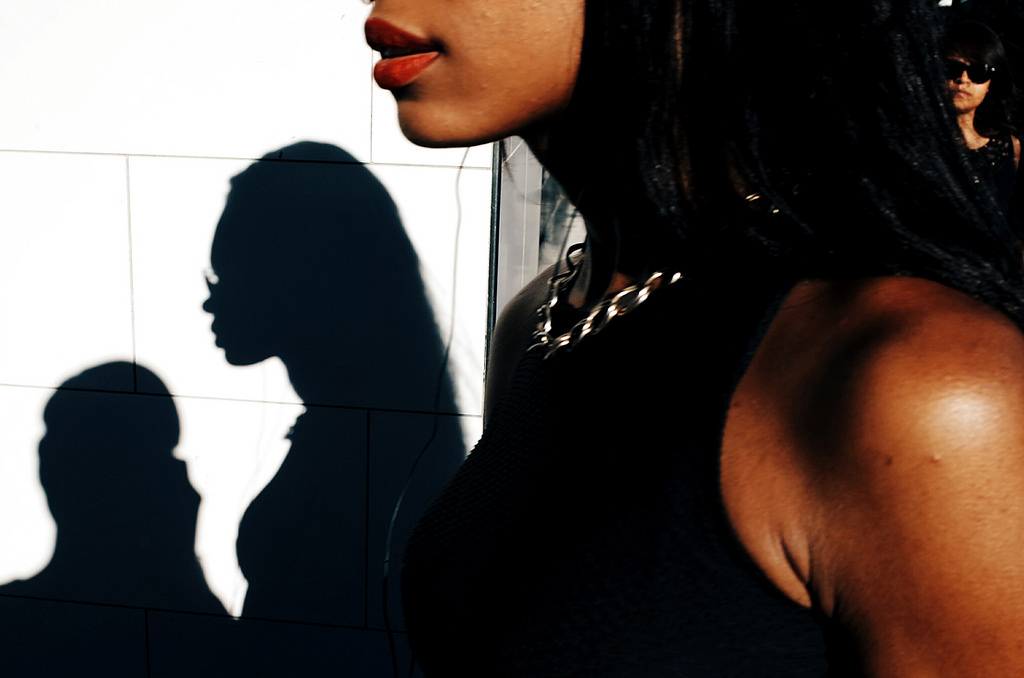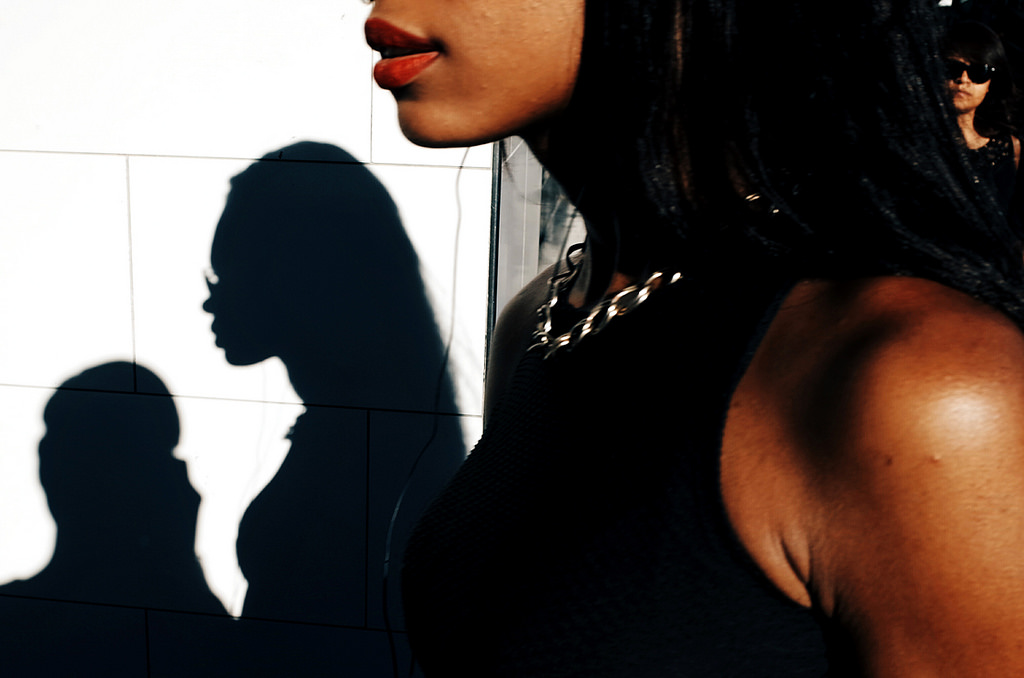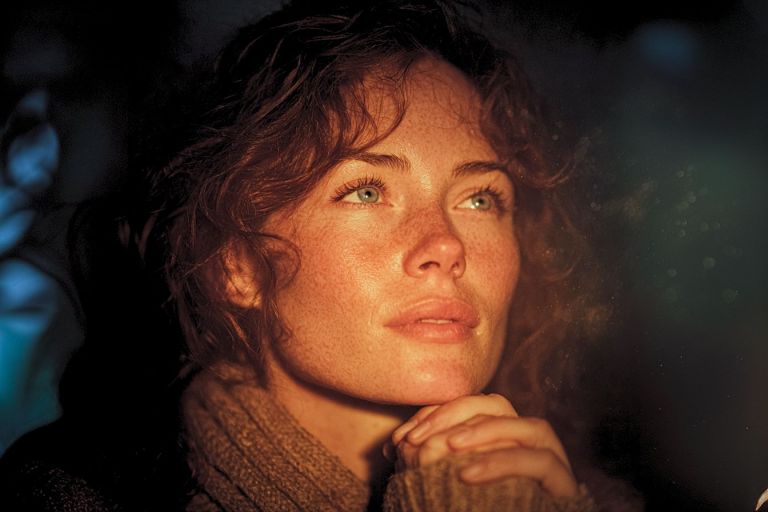
This Is How To Let Others Help You Even If You Are Fiercely Independent
So how do we know when dependence levels are healthy and we have attained that holy grail of all things – balance? How about when we are able to allow ourselves be supported without feeling excessively vulnerable?
From a distance, the independent person cuts a striking pose. To be independent looks like power, freedom, and true strength. But it isn’t. Independence is not strength, it is a wound. Independence is inspired not by love, but fear, and not by wholeness, but aloneness. Independence is the ego’s attempt to be its own god. It is a form of arrogance that leads to much despair. The independent person always runs out of juice – Robert Holden, Ph.D

Being independent is sexy! Right? Righhhht?
As Robert’s hard hitting quote illustrates, independence looks impressive on the surface – but it has a sinister shadow.
What’s lurking in the shadow? Fear. Of being hurt; of appearing ‘needy’; of reaching out only to be rejected.
When ‘I got this’ is our M.O., we stall our personal growth, business endeavors and relationships (all of which thrive on interdependence, delegation and intimacy). You could even say independence is at the root of humanity-wide level catastrophe.
Yes, independence is as inauthentic as its more well-known and mocked opposite, co-dependence. And they are equally damaging.
So how do we know when dependence levels are healthy and we have attained that holy grail of all things – balance?
How about when we are able to allow ourselves be supported without feeling excessively vulnerable? When we can care for someone from a place of wholeness, and not because we need that in order to feel whole?
Below are some approaches to dealing with yourself from both sides of the spectrum.
Attributes Of The Dysfunctionally Independent (DIP)
How do you know when you are being dysfunctionally independent?
- You are too proud, afraid, and/or anal to accept help.
- You never let anyone give to you. Intimacy is unfamiliar and frightening.
- You suffer from ‘here I go again on my own’ syndrome (and you’re proud of it). Even when it comes to sex.
- You appear cool, but you know you are just cut off from your feelings.
- You feel lonely.
- You are afraid of commitment.
- Your attempts at healing are solitary.
- You prefer your dog’s company to other people.
Dysfunctional Independence + Embracing Reliance = Interdependence
Realizing that we are DIPpy isn’t just something new to make ourselves wrong for. It just means integrating the aspects of us that we have shut down (because we previously made it wrong!). For the dysfunctionally independent, that is neediness. (For the codependent, that is worthiness/power – see below).
We start by reliving our old wounds.
Key questions to ask yourself: when did you decide to become so independent? Who hurt you? Who let you down? Go to town in reflecting on your childhood.
Also, be open to some externally sourced help and insight with this (from a therapist or a coach).
The good news is that anytime we reclaim aspects of ourselves that we have disowned, we get our energy and creativity back.
Other good practices for recovering DIPs:
- Notice when you are judgmental of people that you perceive as being ‘needy’. If it provokes a strong reaction in you, it means you are likely projecting. Love and accept the part of you that feels needy sometimes too. Or as a close friend of mine says – ‘own that shit’.
- Say to yourself, ‘today I will receive’. Ask yourself, ‘who could I be asking for help from?’
- Look around you and notice how supported you are being all the time. (The barista that made you your morning coffee. The workpeople that made the road safe for you to drive on).
Truthfully, the notion of independence is a fallacy: if we’re alive, we need help.
Let people help you even when you don’t really need it. In her book 100 days of solitude, Daphne Kapsali says “I might be self-sufficient, but I am not self-contained…asking for help sometimes is an invitation, a way to bring them in, to keep them close”.
Codependency – AKA Why ‘You Complete Me’ Is The Worst Movie Line Ever
(Jerry MaGuire was the movie).
This is the flip side of the coin.
Codependency – feeling like we ‘need’ the other person – is arguably one of the biggest challenges most people face in relationships. Codependency blocks honesty, the potential for growth in a relationship – and it just feels pretty scary. It happens within family units as well as romantic relationships.
Annoyingly, our culture romanticizes codependency. Which is a shame because if independence is characterized by isolation, codependency feels utterly powerless – and there is definitely nothing romantic about that.
How to know whether you are co-dependent? Some signs are low self esteem, people -pleasing, poor boundaries, over sensitivity, extreme care taking of others (massive giveaway), control, poor communication, obsessive behaviour and fears around intimacy.
Codependency + Self Love = Interdependence
Just as Miss and Mr Independent visits his or her childhood wound regarding being let down, Miss/Mr Codependant needs to revisit the strongest or first moment (there have likely been several) where they were made to feel incomplete, unloved and/or unworthy.
The ways you bring yourself into balance are through practices centered on radical self love. Every day, ask yourself:
- What can I do today that will help me to be more self loving
- What can I stop doing?
- Who should I stop spending time with?
- Who do I need to zip it up around (your energy)?
- The last question is getting at boundaries: the co-dependent’s best friend. Knowing what’s on your ‘side of the lawn’ in terms of hurt feelings and what’s the other person’s responsibility will help you to create healthy emotional distance.
The more you reclaim responsibility for loving yourself and not putting that on others, the less co-dependent you will be.
How Interdependence Looks
Interdependence is that balanced, healthy state we want to operate from mostly. It looks like:
- Choosing the people in our life because we enjoy them – not because we need them to like us.
- Not being energetically immeshed with anyone.
Being capable of unconditional love. Well you know, sometimes. - Not being hyper sensitive or taking things personally.
- Doing what we can for others within our own boundaries.
- Recognizing when we need help and asking for it.
- Having intimate friendships and other relationships.
- Freedom.
It is probably the case with all of our perceived ‘strong’ character traits that they have been formed during a painful experience.
Behind the funny man is a sensitive soul. Behind the ultra care-taker is the codependent. Behind the independent woman is a fragile child who is scared to let herself be vulnerable.
On an evolutionary scale, it could be said that we are emerging from the Age of the Individual. This age has been essential for getting rid of stuffy structures that quash our collective souls and led to inauthentically lived lives.
And now it’s time for us to evolve together, to create strong relationships and societies.
But perhaps that’s a little grandiose. So DIPs, start with asking for a lil’ help sometimes.
And co-DIPs: in the words of Justin Bieber, go and love yourselves. ![]()











